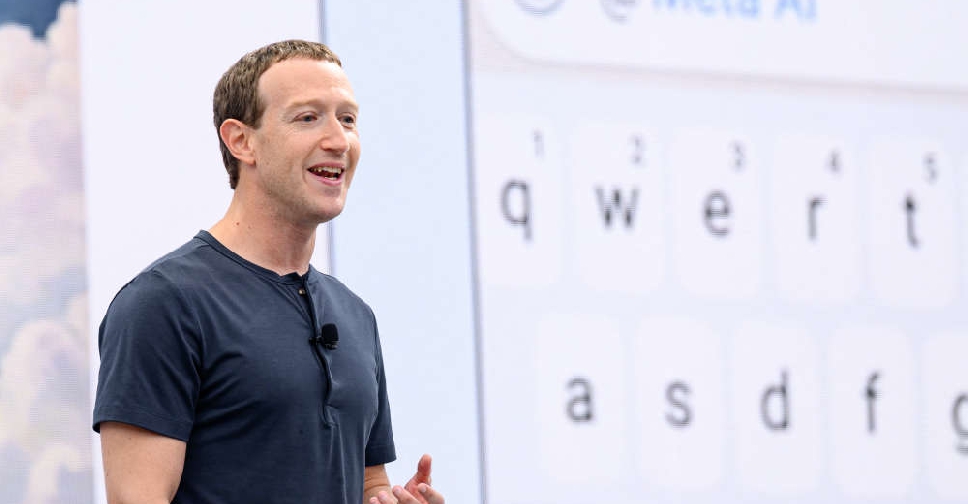
Meta Platforms Chief Executive Mark Zuckerberg on Wednesday rolled out new AI products for consumers, including bots that create photo-realistic images and smart glasses that answer questions, as well as an updated virtual-reality headset.
Zuckerberg described the products as bringing together virtual and real worlds, and underscored that part of what Meta offered was low cost or free AI that could integrate into daily routine. Meta's Quest is the bestseller in the nascent VR space and the company's executives described it as the best value in the industry, a nod to the impending release of a much more expensive headset from Apple.
Speaking from a central courtyard on Meta's sprawling Silicon Valley campus, Zuckerberg said a new generation of Meta's Ray-Ban smart glasses would start shipping on October 17, priced at $299.
The device will incorporate a new Meta AI assistant and be capable of livestreaming broadcasts of what a user is seeing directly to Facebook and Instagram, an advancement over the previous generation's ability to snap photos.
Zuckerberg spoke at the Meta Connect conference, the social media company's biggest event of the year as well as its first in-person conference since the start of the pandemic.
He also said the latest Quest mixed-reality headset would start shipping on October 10 and introduced the company's first consumer-facing generative AI products. The latter includes a chatbot called Meta AI that can generate both text responses and photo-realistic images.
"Sometimes we innovate by releasing something that's never been seen before," Zuckerberg said. "But sometimes we innovate by taking something that is awesome, but super expensive, and making it so it can be affordable for everyone or even free."
Meta AI will be built in to the smart glasses as an assistant, starting with a beta rollout in the United States. A software update planned for next year will give the assistant the ability to identify places and objects that people are seeing, as well as to perform language translation.
Meta made Meta AI using a custom model based on the powerful Llama 2 large language model that the company released for public commercial use in July. The chatbot will have access to real-time information via a partnership with Microsoft's Bing search engine, Zuckerberg said.
In an interview with Reuters, Meta Global Affairs President Nick Clegg said the company had taken steps to filter private details from the data used to train the model and also imposed restrictions on what the tool could generate, like a ban on the creation of realistic images of public figures.
"We've tried to exclude datasets that have a heavy preponderance of personal information," Clegg said, citing LinkedIn as an example of a website whose content was deliberately not used.


 Nasdaq set to confirm bear market as Trump tariffs trigger recession fears
Nasdaq set to confirm bear market as Trump tariffs trigger recession fears
 Dana Gas and Crescent Petroleum exceed 500M boe in Khor Mor field
Dana Gas and Crescent Petroleum exceed 500M boe in Khor Mor field
 China to impose tariffs of 34% on all US goods
China to impose tariffs of 34% on all US goods
 Shares bruised, dollar crumbles as Trump tariffs stir recession fears
Shares bruised, dollar crumbles as Trump tariffs stir recession fears
 Wall Street futures sink as tariffs fuel recession fears
Wall Street futures sink as tariffs fuel recession fears




